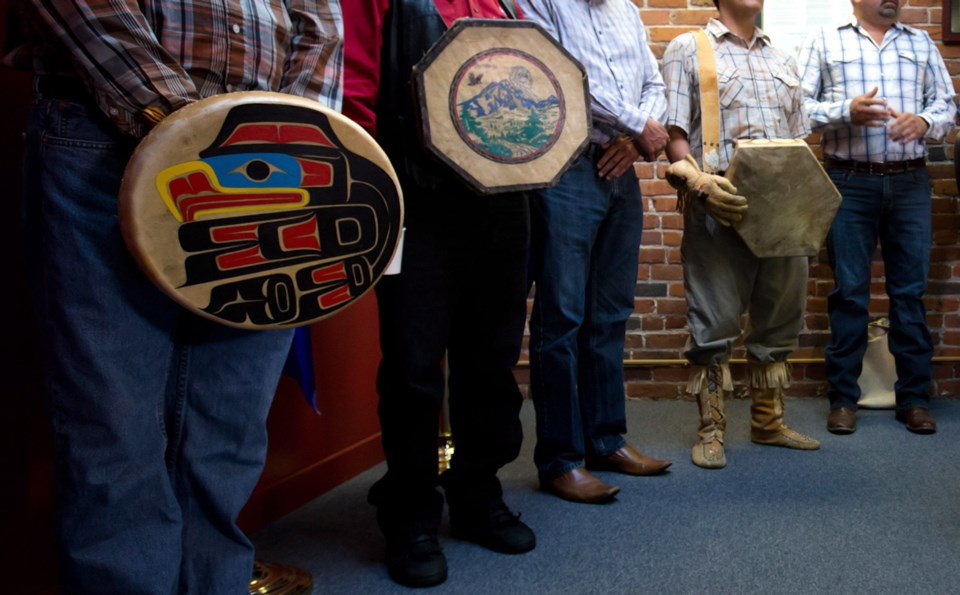A landmark Supreme Court of Canada ruling Thursday could set a significant precedent for Vancouver Island First Nations.
The ruling, which for the first time recognizes a First Nations’ right to a specific tract of land, has “huge implications” for the five bands that make up the Saanich (WSANEC) Nation, said Eric Pelkey, treaty officer for Tsawout First Nation.
“This means a lot to us. These are the same issues we are pushing.”
Pelkey said this is why Tsawout acted as an intervenor in the case, as did the Tsartlip First Nation.
“We have been documenting our use of the territory, interviewing elders and preparing for action,” he said.
The focus will be on the Douglas Treaties, which were signed in the 1850s between the colony and local chiefs. In the agreement, aboriginal people held onto village lands and rights to fish and hunt in traditional areas.
“The land was recognized as our own,” said Pelkey.
“Now our resources are being used up, fishing has been depleted in our waters … and the province gives other people rights for logging.”
He said the ruling reinforces a duty to work with First Nations on anything that could affect traditional territories.
“It says we have to be consulted. They have to come to the table and talk, not just send a letter telling us, ‘We’re doing this,’ ” he said, noting the purpose of treaty action is not to kick anyone off of traditional lands.
B.C. Justice Minister Suzanne Anton said the decision provides additional clarity around the relationship between the province and aboriginal peoples. She said government will take time to study the ruling, while continuing to work closely with First Nations.
“We all know the success that comes when we choose to negotiate rather than litigate,” she said. “As the courts have repeatedly pointed out, negotiation is preferable.”
NDP Leader John Horgan said the federal and provincial government will need to move quickly to open discussions with First Nations to avoid litigation.
“This is an opportunity for us to have even further certainty on the land base,” he said.
“Every time I talk to investors, it’s always ‘I need certainty; tell me what the rules are and I will adjust my business plan accordingly.’ I think in the long term this will be a good thing for British Columbia and certainly for First Nations.”
Douglas White, a lawyer and interim director of the Centre for Pre-Confederation Treaties and Reconciliation at Vancouver Island University, said the ruling is a historic game-changer in the relationship between the Crown and First Nations.
“It’s an important decision because it is territorial in scope. It doesn’t just deal with these small plots of land,” he said, noting much of the Island could be affected.
“When we think about the broader framework, the court has indicated consent is a requirement.”
White said this is a new reality for the provincial government, which has held final say on what happens on traditional lands before now.
“What this means is really meaningful and full-blown shared decision-making,” he said. “The rhetoric from the Crown and industry is that if aboriginal title is declared it will be a disaster. This is untrue.”
White said that recognizing title will not only help the more than 200 aboriginal communities throughout B.C. but it also opens up an opportunity for First Nations to engage with the Crown and industry in stronger partnerships.



